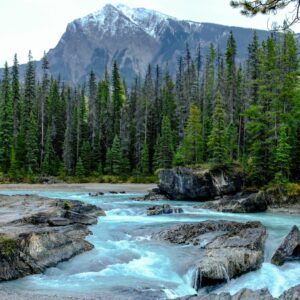Review Panel to Release Mackenzie Gas Project Report in December: Nature Canada Available for Comment
[separator headline=”h2″ title=”Review Panel to Release Mackenzie Gas Project Report in December: Nature Canada Available for Comment”]
December 7, 2009 (Ottawa) – The future of the mighty Mackenzie River – and the “basin-opening” pipeline megaproject that threatens to forever change it – may soon become clearer, with the release of a long-anticipated environmental assessment report.
A Joint Review Panel, tasked by the government to report on the environmental, socio-economic and cultural effects of the Mackenzie Gas Project, is expected to release its findings in December, over two years after the panel’s hearings ended in 2007.
The Mackenzie Gas Project, likely to cost at least CDN $16 billion, includes three major natural gas production fields north of Inuvik and two underground natural gas pipelines (the longest is 1,220 km) to carry the gas south along the Mackenzie Valley to northern Alberta. Other pipelines would be built connecting other gas fields to the main pipelines.
“If this mega-project is allowed to proceed, globally important habitat like the Kendall Island Migratory Bird Sanctuary would be permanently damaged for short-term gain,” said Carla Sbert, Nature Canada’s manager of conservation programs. “We need a network of protected areas in place in Canada’s north before considering transformative projects like this one.”
At the Joint Review Panel’s hearings in 2007, Nature Canada argued that the full impact of the project on the lands, water and wildlife of this unique environment would leave an unacceptable footprint.
If allowed to proceed, the project would:
- Fragment habitat for bears, caribou and wolves.
- Harm fish and fish habitat by increasing sediment deposition into rivers and streams.
- Permanently damage important breeding or staging areas for millions of geese, tundra swans and other migratory birds.
- Cause forests to be clear cut and heavy machinery deployed to construct the infrastructure and the new underground pipelines.
- Impose development on First Nations lands before the Dehcho and Sahtu peoples complete their own land use plans.
- Accelerate the effects of climate change in the Mackenzie Valley.
Nature Canada plans to provide comments on the Panel’s report once it’s released. The National Energy Board expects to hear final arguments for and against the project in April 2010 before making its decision in September on whether to grant a permit.
[separator headline=”h2″ title=”For more information, contact:”]
Carla Sbert, Manager of Conservation Programs
Nature Canada
(613) 562-3447 ext. 222
csbert@naturecanada.ca
– 30 –



